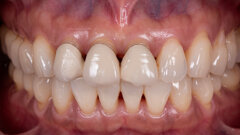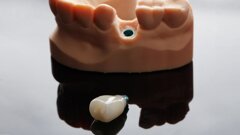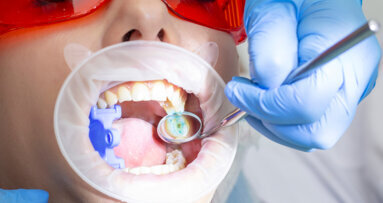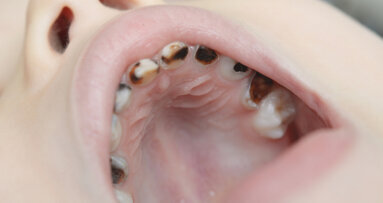BURPENGARY, Australia: Students in Queensland, Australia, have been warned not to bring Christmas candy canes to school. The red-and-white sweet treats were banned from at least half a dozen Queensland schools in an attempt to avoid sugar highs. The Australian Dental Association also warns against the popular sweets that can have a significant negative impact on oral health.
According to the The Courier-Mail, the principal of Burpengary State School, Bradley Fox, said the school had been accused of being a “Christmas Grinch” because of the ban. However, he is adamant that the lollies are unacceptable Christmas gifts.
“While our school works really hard to positively role model and promote healthy eating, the tradition of children exchanging candy canes at this time of year undermines all of that work,” he told the newspaper. “As a community, we believe it is necessary to examine and challenge the hidden messages we send out to children at Christmas.”
Fox estimated that there would be 25,000 candy canes—with all their associated sugar, preservatives and colouring—circulating at the school at Christmas time. He said that students should instead exchange harmless and inexpensive gifts, such as pencils or handmade cards.
Chairman of the Australian Dental Association’s Oral Health Committee, Dr Peter Alldritt, is also concerned about the impact of candy canes. “They are even worse than lollies or candies, as the kids hold them in their mouth for a long period of time. It’s bathing your teeth in sugar and acid,” Alldritt told the newspaper.
LEIPZIG, Germany: Rural communities across the US are facing a growing oral health crisis as access to fluoridated water and dental care diminishes. This ...
BOSTON, U.S.: In a recent study, researchers have examined the association between light-polymerized, resin-based and fluoride-releasing sealants and the ...
HYATTSVILLE, Md., U.S.: Research has shown that dental caries is the most common chronic disease among young people living in the U.S. aged 6–19. ...
ADELAIDE, Australia: A recent study, led by the Australian Research Centre for Population Oral Health (ARCPOH) at the University of Adelaide, aimed to ...
BIRMINGHAM, Ala., USA: There is a recommendation for children to have a dental visit by 6 months of age, but there is insufficient evidence of improved ...
DUNEDIN, New Zealand: There is higher prevalence of cognitive and physical impairments among older people that can adversely affect their oral self-care and...
SYDNEY, Australia: The Australian Dental Industry Association (ADIA), the organisation representing dental product manufacturers and suppliers in the ...
QUEBEC CITY, Canada: The occurrence of dental caries may depend in part on school-based environmental or policy-related factors, but few researchers have ...
COLOGNE, Germany: Deep caries is the most common reason patients visit the dentist, and one in three patients present with a deep cavity. Pulp exposure is ...
UMEÅ, Sweden: Researchers at Umeå University in Sweden have made a novel discovery connecting highly virulent types of the Streptococcus mutans caries ...
LONDON, England: Driven by the NHS dental crisis, an increasing number of UK patients seeking cheaper dental work overseas are encountering unexpected ...
Dr. Anthony Viazis DDS, MS. Inventor & Founder of Fastbraces®
Live webinar
Tue. 3 February 2026
7:00 pm EST (New York)
Live webinar
Wed. 4 February 2026
11:00 am EST (New York)
Live webinar
Thu. 5 February 2026
2:30 pm EST (New York)
Dr. Boota Ubhi BDS, FDS RCS (Edin), MDentSci, MRD RCS (Eng) Specialist, Cat Edney
Live webinar
Thu. 5 February 2026
8:00 pm EST (New York)
Dr. Zeeshan Sheikh Dip.Dh, BDS MSc, M.Perio, PhD, FRCDC, Dip-ABP
Live webinar
Tue. 10 February 2026
7:00 pm EST (New York)
Prof. Dr. Wael Att, Dr. Robert A. Levine DDS, FCPP, FISPPS, AOD, Dr. Larissa Bemquerer ITI Scholar at Harvard
Live webinar
Wed. 11 February 2026
11:00 am EST (New York)
Dr. med. dent. Sven Mühlemann



 Austria / Österreich
Austria / Österreich
 Bosnia and Herzegovina / Босна и Херцеговина
Bosnia and Herzegovina / Босна и Херцеговина
 Bulgaria / България
Bulgaria / България
 Croatia / Hrvatska
Croatia / Hrvatska
 Czech Republic & Slovakia / Česká republika & Slovensko
Czech Republic & Slovakia / Česká republika & Slovensko
 France / France
France / France
 Germany / Deutschland
Germany / Deutschland
 Greece / ΕΛΛΑΔΑ
Greece / ΕΛΛΑΔΑ
 Hungary / Hungary
Hungary / Hungary
 Italy / Italia
Italy / Italia
 Netherlands / Nederland
Netherlands / Nederland
 Nordic / Nordic
Nordic / Nordic
 Poland / Polska
Poland / Polska
 Portugal / Portugal
Portugal / Portugal
 Romania & Moldova / România & Moldova
Romania & Moldova / România & Moldova
 Slovenia / Slovenija
Slovenia / Slovenija
 Serbia & Montenegro / Србија и Црна Гора
Serbia & Montenegro / Србија и Црна Гора
 Spain / España
Spain / España
 Switzerland / Schweiz
Switzerland / Schweiz
 Turkey / Türkiye
Turkey / Türkiye
 UK & Ireland / UK & Ireland
UK & Ireland / UK & Ireland
 Brazil / Brasil
Brazil / Brasil
 Canada / Canada
Canada / Canada
 Latin America / Latinoamérica
Latin America / Latinoamérica
 USA / USA
USA / USA
 China / 中国
China / 中国
 India / भारत गणराज्य
India / भारत गणराज्य
 Pakistan / Pākistān
Pakistan / Pākistān
 Vietnam / Việt Nam
Vietnam / Việt Nam
 ASEAN / ASEAN
ASEAN / ASEAN
 Israel / מְדִינַת יִשְׂרָאֵל
Israel / מְדִינַת יִשְׂרָאֵל
 Algeria, Morocco & Tunisia / الجزائر والمغرب وتونس
Algeria, Morocco & Tunisia / الجزائر والمغرب وتونس
 Middle East / Middle East
Middle East / Middle East














































To post a reply please login or register